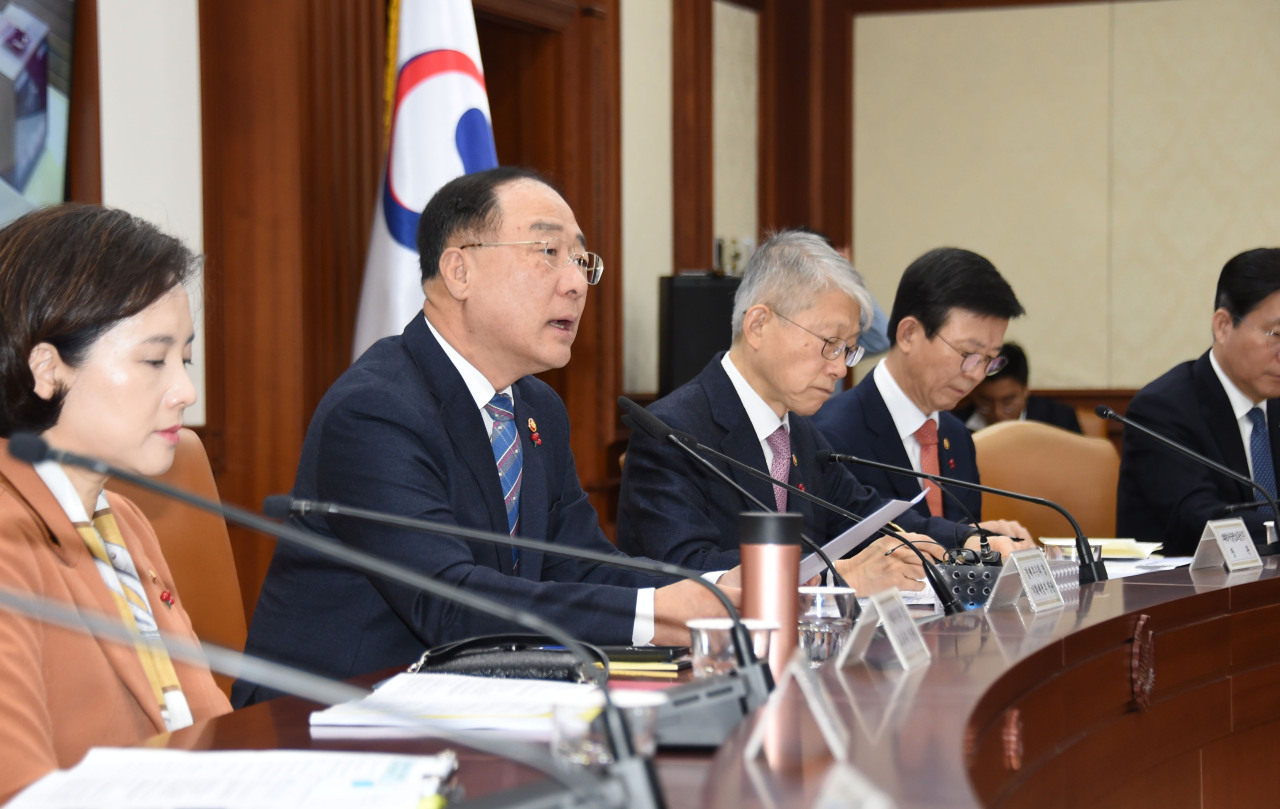The Finance Ministry announced Wednesday plans to establish a 12 trillion won ($10 billion) fund to help support competent startups scale up as unicorns, allocating 300 billion won exclusively for fintech firms.
Unicorns refer to startups valued at over $1 billion.
“(The government) will actively adopt policies to scale up and advance the fintech ecosystem both quantitatively and qualitatively, so that South Korean startups can emerge as global unicorns,” Deputy Prime Minister and Finance Minister Hong Nam-ki said in a meeting of economy-related ministers.
So far, Viva Republica, the operator of mobile money transfer service Toss, is the only fintech firm among the six Korean unicorns.
 |
Deputy Prime Minister and Finance Minister Hong Nam-ki (second from left) speaks in a meeting of economy-related ministers at Seoul Government Complex on Wednesday. (Ministry of Economy and Finance) |
Citing the regulatory sandbox programs that alleviate regulatory hurdles for early-stage technology businesses, he vowed to speed up the drive for innovation.
The ministry plans to designate 100 innovative financial products by March that will be tested under the regulatory sandbox and introduce a “small license” optimized for fintech startups, he said.
While giving a favorable assessment of the Moon Jae-in administration’s accomplishments in innovation over the past 2 1/2 years, he also admitted to some shortcomings.
“(The government) has achieved visible results in new industries such as data, 5G network, artificial intelligence, bio health, and system semiconductors, which all laid the foundation for innovative growth,” Hong said.
“However, innovation has not been evenly distributed across all industries and companies.”
Korea’s big data market has expanded 70 percent since 2016 and its AI tech sales by 90 percent. In April this year, the nation became a global pioneer in commercializing 5G network services.
Investments in new ventures peaked at a record high of 3.42 trillion won in 2018, and is forecast to exceed the 4 trillion won mark this year.
However, according to a market survey conducted by the Korea Economic Research Institute on 200 local companies, those unsatisfied with the government’s deregulation outcome stood at 22 percent, almost double that of those satisfied, and up 4.9 percent from a year earlier.
The government will also promote the local food industry, in step with the Korean Wave, or Hallyu, seeking to double the market size of five key sectors to 24.9 trillion won by 2030, according to Hong.
The government also hopes to create 112,000 new jobs in these sectors during the same period, compared with 51,000 jobs created last year.
By Bae Hyun-jung (
tellme@heraldcorp.com)








![[Today’s K-pop] Blackpink’s Jennie, Lisa invited to Coachella as solo acts](http://res.heraldm.com/phpwas/restmb_idxmake.php?idx=644&simg=/content/image/2024/11/21/20241121050099_0.jpg)